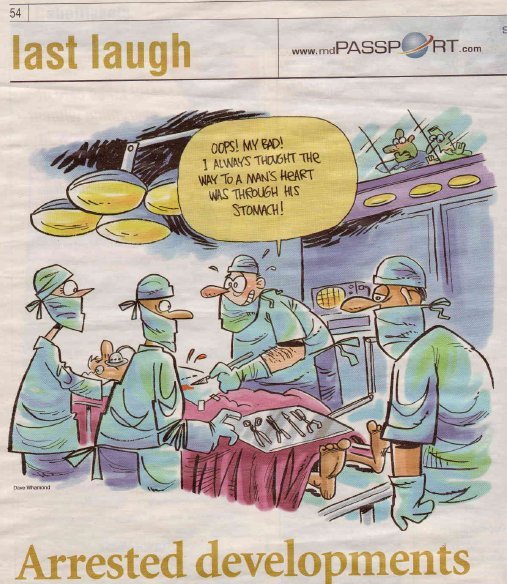“Cardiovascular disease is responsible for half of all deaths among women aged 50 and older in Canada and the United States,” says an article in the Canadian Medical Association Journal (CMAJ March 13, 2007). Heart attacks and strokes account for more deaths in women than all cancers combined.
We know heart disease is a number one killer in men and women. We also know sudden cardiac arrest is the leading cause of death in Canada, claiming about 40,000 people each year. About 95 per cent of them die before reaching the hospital. Can you imagine two-thirds of Medicine Hat’s population dying each year from heart attack? Scary, eh! So, if you are going to have a heart attack then you better be in the hospital or pretty close to it. The other options – stay healthy.
Most women worry about cancer of the breast, ovary, uterus and cervix. It is natural to worry about these cancers but it is also important to take care of your heart health. Scientists bear some of the blame for ignoring women’s heart health issues in the past. Most research studies previously were restricted to men. But in the last few years there has been significant interest in women’s heart health issues.
So, ladies, heart month of February is not over yet. Start a plan for yourself and your family. Make a list of things you can do to prevent heart disease.
Let us start with obesity. We are a nation of too many obese people. Central obesity is a more important risk factor for heart disease than body mass index in both sexes. So losing body fat is important. There are two things to do to lose excess fat: exercise and eat less. This isn’t rocket science but you need the discipline and determination of an astronaut.
It has been found that diabetes increases the risk of cardiovascular disease among women to a greater extent than it does among men. If you are a diabetic then make sure it is under control. Discuss with your doctor if you need to take any medications to prevent heart disease.
Differences in cardiovascular presentation – one recent study suggests that men report more severe chest pain and sweating and that women report less severe pain and more nausea. Does that mean man get more attention than women? Quite likely. Women with atypical symptoms and no severe chest pain are more likely to remain undiagnosed. Women have more silent heart attacks than men. Physicians should remember this and pay more attention to women’s chest symptoms.
It has also been shown that women with acute heart attack are less likely than men to receive thrombolysis (clot busting immediate therapy) or revascularization (bypass surgery).
Women’s heart health is getting more attention now. Hopefully, this will reflect in the future studies in a positive way. So, ladies, do your part and stay healthy that means your family will be healthy as well.
Start reading the preview of my book A Doctor's Journey for free on Amazon. Available on Kindle for $2.99!
